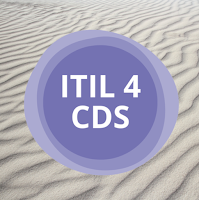Create, Deliver and Support (CDS) is one of many content areas of focus within the ITIL 4 guidance. It is included in the ITIL 4 schema for ITIL Specialist certification and is one of the many modules contained in the Managing Professional Transition class.
Create, Deliver, and Support (Training and Certification) is an advanced course that requires the ITIL 4 Foundation knowledge and certification. It takes a deeper dive into core areas of holistic thinking and application by understanding clearly; the Service Value System, Service Value Chain and the Anatomy of a Value Stream.
To create, deliver and support services, specialists need a broad set of competencies to meet the dynamic need and demand for digital services.
Proficiencies gained will help professionals optimize end to end value and must expand beyond tech to include such things as:
Create, Deliver, and Support (Training and Certification) is an advanced course that requires the ITIL 4 Foundation knowledge and certification. It takes a deeper dive into core areas of holistic thinking and application by understanding clearly; the Service Value System, Service Value Chain and the Anatomy of a Value Stream.
To create, deliver and support services, specialists need a broad set of competencies to meet the dynamic need and demand for digital services.
Proficiencies gained will help professionals optimize end to end value and must expand beyond tech to include such things as:
- Radical soft skills that take communication, leadership, and innovation to the next level
- Ability to provide opportunities for continued professional development
- Ability to develop recruiting and onboarding skills for cross-functional teams
- Building job descriptions that include both technical and non-technical skills
- Enable and encourage staff to investigate new ideas, ways of thinking and new ways of working
- Recognize non-IT experience (e.g., team management, procurement) and provide efficient workforce planning
To learn more, or to register for the Create Deliver and Support certification course, please visit https://www.itsmacademy.com/CDS




Comments